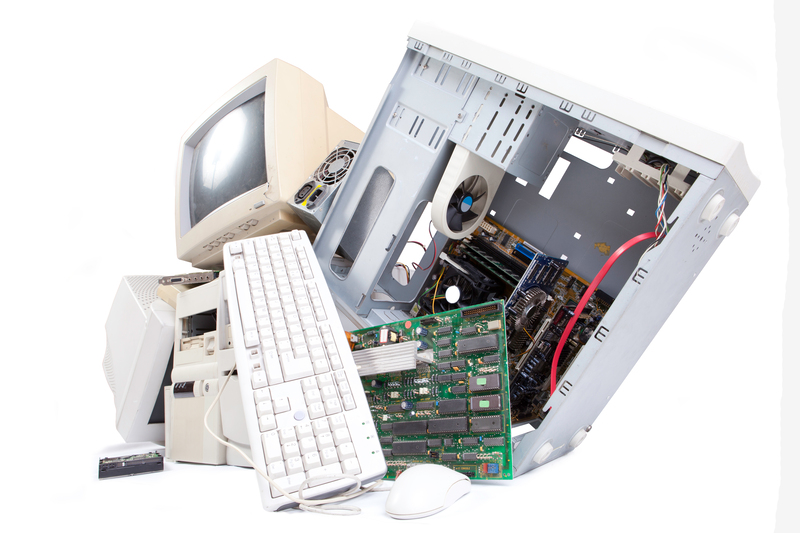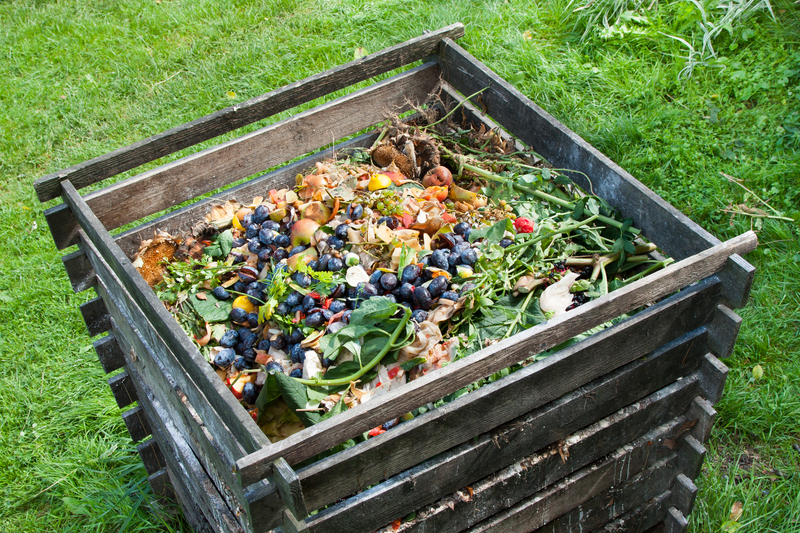Protecting the Environment While Disposing of PPE Waste
The ongoing global use of Personal Protective Equipment (PPE) has played a critical role in safeguarding public health. However, the widespread necessity of PPE--such as masks, gloves, face shields, and gowns--has introduced new environmental threats primarily due to improper disposal. Protecting the environment while disposing of PPE waste is an essential challenge that demands urgent and innovative solutions. This comprehensive guide explores sustainable strategies, effective policies, and actionable tips for individuals and organizations to manage PPE waste responsibly.
Understanding the Impact of PPE Waste on the Environment
The single-use nature of most PPE items, combined with a global health crisis, has dramatically increased the quantity of medical and plastic waste being sent to landfills and waterways. Here's how improper PPE waste disposal affects the environment:
- Plastic Pollution: Most PPE is made from non-biodegradable plastics such as polypropylene. Once discarded, these plastics can persist in the environment for centuries, contributing to the already alarming levels of plastic pollution.
- Wildlife Hazards: Animals often mistake PPE items for food, leading to ingestion and potential fatalities. Loose masks and gloves also pose entanglement risks for terrestrial and marine wildlife.
- Soil and Water Contamination: Toxic chemicals from decomposing PPE can seep into soil and water, disrupting ecosystems and threatening public health.
- Microplastics Proliferation: As PPE breaks down, it releases microplastics, which accumulate in water bodies and enter the food chain, impacting human and animal health.
The Scale of the Problem: PPE Use and Disposal Statistics
- 13 million tons of plastic waste related to COVID-19 has been generated globally as of 2022.
- It's estimated that 129 billion face masks and 65 billion gloves are used globally every month.
- 95% of single-use masks and gloves are improperly disposed, ending up in natural environments and public spaces.

Why Proper PPE Waste Disposal Matters
Disposing PPE waste responsibly is no longer optional; it's a critical environmental responsibility. The benefits of environmentally friendly PPE disposal include:
- Minimizing plastic pollution to protect oceans, rivers, and landscapes.
- Reducing health hazards for sanitation workers and the public by managing potentially infectious materials properly.
- Promoting circular economy through recycling and energy recovery from PPE materials.
- Preserving wildlife by eliminating entanglement and ingestion risks posed by abandoned PPE items.
Best Practices for Disposing of PPE Responsibly
Effective PPE waste management requires a multi-faceted approach. Here are some actionable tips to ensure you are protecting the environment while getting rid of PPE waste:
1. Segregate PPE Waste from Other Trash
- Always put PPE waste--like used masks and gloves--in a dedicated, lined bin rather than mixing it with general waste or recyclables.
- Clear signage can help users distinguish between regular garbage, recyclables, and hazardous PPE waste.
2. Double-Bag and Secure
- For home disposal, place soiled PPE in a bag, tie it securely, and put that bag inside another before discarding.
- This double-bagging reduces risk of contamination and stops loose PPE from escaping due to torn bags or wind.
3. Do Not Flush PPE
- Never flush face masks, gloves, or wipes down the toilet. These items are non-flushable and can clog sewage systems, leading to overflows and environmental contamination.
4. Follow Local PPE Waste Disposal Guidelines
- Rules may vary, so always adhere to local regulations for disposing of biohazardous and medical waste. Many cities now offer special collection points for PPE.
5. Participate in PPE Recycling Programs
- Seek out initiatives and companies that offer recycling or upcycling solutions for used PPE. Some organizations collect masks and gloves for conversion into plastic lumber, footpaths, or even energy.
6. Minimize PPE Use Where Safe
- When it's safe and appropriate, opt for reusable protective equipment made from cloth or washable materials instead of single-use products.
Innovative Solutions for Sustainable PPE Waste Management
With growing awareness of sustainable PPE waste strategies, researchers and organizations are developing innovative approaches to tackle this unique waste stream:
1. PPE Recycling Technology
- Several firms now offer technologies that sterilize and shred used masks and gloves, making them safe for recycling into construction materials, outdoor furniture, or textiles.
2. Biodegradable PPE
- Development of masks, gowns, and gloves from biodegradable materials such as plant-based fibers or polylactic acid (PLA) offers an eco-friendly alternative, reducing long-term waste accumulation.
3. Take-Back Programs
- Hospitals, pharmacies, and supermarkets are increasingly offering mask collection bins for recycling or energy recovery. These programs are crucial for diverting PPE from landfills.
4. Energy Recovery from PPE Waste
- Energy-from-waste (EFW) incinerators can process non-recyclable PPE and convert it into electricity, minimizing landfill burden and leveraging the embedded energy content.
Guidelines for Individuals: How You Can Help Protect the Environment While Disposing of PPE Waste
Every individual plays a vital role in ensuring that PPE waste does not harm our planet. Here's how you can make a difference:
- Carry a sealable bag when you go out, to store used masks or gloves until you can dispose of them properly.
- Educate family and friends about the environmental dangers of littered PPE and encourage responsible habits.
- Choose reusable PPE where possible, such as fabric masks or washable face shields, and maintain rigorous hygiene.
- Support eco-conscious brands that offer sustainable PPE or participate in take-back/recycling schemes.
Organizational Responsibility: Managing PPE Waste in Workplaces and Public Spaces
Organizations and institutions can significantly reduce environmental impacts by adopting thoughtful PPE waste management policies. Here's how to incorporate environmentally responsible PPE disposal into your business or workplace:
Establish Clear Collection and Disposal Protocols
- Designate PPE waste bins in prominent, accessible areas, and label them clearly.
- Train employees and visitors on proper disposal practices to avoid contamination of general waste or recyclables.
Partner with Certified Waste Managers
- Work with professional, licensed waste handlers experienced in dealing with infectious and plastic waste streams.
Launch Internal Awareness Campaigns
- Promote the importance of sustainable PPE use and disposal through posters, newsletters, or briefings.
Explore On-Site Sterilization and Recycling
- For large facilities, consider investing in compact on-site sterilization units to safely treat and potentially recycle PPE waste.
Government Policy and Global Initiatives for Sustainable PPE Waste Disposal
Governments worldwide recognize the environmental threats posed by PPE waste and are enacting policies to mitigate its impact. Some notable initiatives include:
- Standardized collection systems for COVID-19-related waste in hospitals, quarantine sites, and public spaces.
- Funding research and development of biodegradable or recyclable PPE alternatives.
- Partnerships with manufacturers to ensure take-back programs and extended producer responsibility for PPE products.
The Role of Innovation: Moving Towards a Circular PPE Economy
Transforming PPE waste management goes beyond disposal--it's about creating a circular system wherein materials are reused and recycled wherever possible. The following innovations are leading the change:
- Eco-design: Developing PPE products that are easily recyclable, compostable, or repurposable.
- Blockchain tracking: Labeling and tracking PPE through its lifecycle to ensure responsible disposal or recycling.
- Consumer incentives: Providing financial or social incentives for returning used PPE for recycling.
Case Studies: Successful Environmental Protection in PPE Waste Management
TerraCycle's Mask Recycling Initiative
TerraCycle, a global waste management firm, has launched collection boxes for households and business offices to mail used masks and gloves for recycling. The recovered materials are repurposed into industrial products, demonstrating that sustainable PPE waste management is possible at scale.
Indian Government's Biomedical Waste Rules
India's updated Biomedical Waste Management Rules mandate separate colored bins and daily collection of COVID-19-related waste, supported by robust tracking and disposal measures, greatly reducing PPE litter.

Challenges and Future Directions
While progress is being made, challenges such as lack of recycling infrastructure, public unawareness, and cost barriers persist. The future of environmentally friendly PPE disposal lies in:
- Scaling biodegradable PPE production for affordability and widespread adoption.
- Expanding public and private recycling infrastructure globally.
- Integrating PPE waste management into broader sustainability policies and corporate responsibility.
Conclusion: Our Shared Responsibility in Protecting the Environment from PPE Waste
The surge in demand for masks, gloves, and other protective gear is unlikely to diminish in the near future. Our collective challenge is protecting the environment while disposing of PPE waste. By embracing responsible disposal habits, advocating for innovation, and supporting policy change, we can ensure that public health and environmental health go hand-in-hand.
Remember: Every PPE item disposed of thoughtfully is a step toward a cleaner planet. Each one of us has the power to make a difference.
Key Takeaways
- Improper disposal of PPE waste contributes significantly to plastic pollution and environmental harm.
- Segregation, secure containment, participation in recycling programs, and choosing reusable PPE are practical steps individuals can take.
- Organizations should establish clear protocols, partner with certified waste managers, and promote awareness about responsible disposal.
- Government policies and innovative solutions are key to building a more sustainable future for PPE waste management.
Let's act today for the future. The health of our communities, ecosystems, and planet relies on responsible PPE waste management.